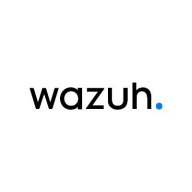

Find out what your peers are saying about IBM, Exabeam, Rapid7 and others in User Entity Behavior Analytics (UEBA).


Threats are a moving target. Determined and persistent threat actors purposely stretch out their activity across weeks or even months, especially when most SIEM and XDR solutions are incapable of piecing together events across time. Even worse, is that these solutions primarily use rule-based Machine Learning, which is essentially pattern matching. This makes them especially ineffective in detecting new attacks and/or variants, which are highly successful in breaching organizations. Discover how Gurucul UEBA security can help your enterprise.
Wazuh is an enterprise-ready platform used for security monitoring. It is a free and open-source platform that is used for threat detection, incident response and compliance, and integrity monitoring. Wazuh is capable of protecting workloads across virtualized, on-premises, containerized, and cloud-based environments.
It consists of an endpoint security agent and a management server. Additionally, Wazuh is fully integrated with the Elastic Stack, allowing users the ability to navigate through security alerts via a data visualization tool.
Wazuh Capabilities
Some of Wazuh’s most notable capabilities include:
Wazuh Benefits
Some of the most valued benefits of Wazuh include:
Wazuh Offers
Reviews From Real Users
"It's very easy to integrate Wazuh with other environments, cloud applications, and on-prem applications. So, the advantage is that it's easy to implement and integrate with other solutions." - Robert C., IT Security Consultant at Microlan Kenya Limited
“The MITRE ATT&CK correlation is most valuable.” - Chief Information Security Officer at a financial services firm
We monitor all User Entity Behavior Analytics (UEBA) reviews to prevent fraudulent reviews and keep review quality high. We do not post reviews by company employees or direct competitors. We validate each review for authenticity via cross-reference with LinkedIn, and personal follow-up with the reviewer when necessary.